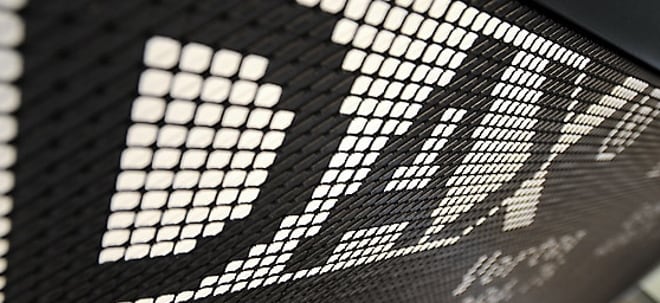Analysis, creativity, and presentation skills propelled Rutgers Business School students to win TCU graduate supply chain case competition
Graduate students from 20 business schools engaged in a challenging supply chain and marketing simulation for Frito-Lay at the upcoming 2026 FIFA World Cup.
NEWARK, N.J., April 11, 2025 /PRNewswire/ -- Four Rutgers Business School graduate students won Texas Christian University's Supply Chain Case Competition after spending 24 hours developing a strategy for distributing a new Frito-Lay snack at the 2026 World Cup.
The Rutgers team – made up of Full-Time MBAs Badri Venkatanathan, Pilar Grullón, Suman Venkat, and specialty master's student Mansi Sheth – bested five teams to advance to the final round where they won the $14,000 first prize. The competition attracted 20 student teams, including one from Germany.
"We went through a lot of different emotions, from holding our heads in our hands to extreme joy when we won," Venkat said days after the competition. A win at TCU had eluded Rutgers for six years.
Case competitions are popular among business school students because they offer an opportunity to network and to demonstrate how their classroom lessons can be applied to real-world problems and situations. Participation in the events also gives students colorful talking points for their resumes and job interviews.
Learn more about the Rutgers Full-Time MBA and all of the opportunities it holds. Attend an online Info Session on Tuesday, April 15, at noon. Register here.
The TCU case focused on supply chain, requiring the teams to forecast demand for an untested new product, address production capacity, and develop a strategy for how to keep vendors supplied with the new snack.
The Rutgers students said they received the case at 7 a.m. after arriving in Texas the previous afternoon. They were eight hours into the case when Venkatanathan strolled quietly across the room, carrying his laptop. The numbers weren't making sense in the team's forecasting models.
"We're going down the wrong path," he told the others. It was a moment the students remembered as part of their "trauma bonding."
"We had to recalibrate everything," said Venkatanathan, who became the team's leader because he had the most experience doing case competitions. The students erased the whiteboards and started over.
As they went through the case again, Grullón and Sheth discovered something that helped the team pivot successfully – and ultimately helped them to win the competition. All the calculations, they realized, had to be based on snack-size products not family-sized and not a mix of both. "It was the lynchpin," Venkatanathan said.
Grullón said the team chose not to base their plan on a Superbowl scenario but instead included elements of Swiftonomics and the Messi Effect, incorporating things they knew about the economics around Taylor Swift's The Eras Tour and the effect of Argentina soccer player Lionel Messi's appearances at matches in Miami.
The approach won Rutgers points for creativity. But the team also did a comprehensive analysis, forecasting snack demand for seven weeks leading up to the World Cup, a period that included long summer holiday weekends and ceremonies opening and closing the event.
The Rutgers MBAs went deep, addressing details like the limited shelf space in the stadium kiosks. To keep supplies replenished, they proposed a fleet of small vans – "a distribution center on wheels," they dubbed it – for quickly shuttling the product from larger trucks parked outside the venue.
The team decided to take on the bonus portion of the case, too – something they felt would differentiate them. They decided to have fun with it, incorporating local details like the Texas Torpedo so cleverly, that one judge was stunned when she found out they weren't from Texas.
When their 7 a.m. deadline arrived the next day, the team submitted a 45-slide deck. Grullón said she took a 30-minute nap while the others stayed awake. The team made its first-round presentation at 11:30 that morning.
Professor David Dreyfus, who assembled the team and served as advisor, videotaped the team's first round. When they learned that they would advance to the final round, the Rutgers students studied the video to refine their presentation.
The final round presentation that afternoon took 25 minutes and six minutes of questions from the judges. "When we finished," Grullón said, "we knew we had aced it."
Dreyfus said the team received accolades throughout the competition for its analysis, creativity, presentation skills and how it acknowledged the brand. "This competition is one of the premier graduate-level supply chain management case competitions in the nation," Dreyfus said. "Our students competed and won against the best. I'm thrilled about their success and the recognition they have received."
Looking back on the experience, the students said their success was tied to figuring out the forecasting model after their misstep. "The model that we came up with was so robust," said Sheth, who is completing a Master's in Healthcare Analytics and Intelligence. "The judges really appreciated it. If we had given up and just moved onto other things, we would not have been in such a good position."
Grullón marveled about how the team – most of them were only acquaintances before the competition – worked together and bonded through the experience. "Everyone contributed different things at different times," she said. "The team dynamics were incredible."
![]() View original content to download multimedia:https://www.prnewswire.com/news-releases/analysis-creativity-and-presentation-skills-propelled-rutgers-business-school-students-to-win-tcu-graduate-supply-chain-case-competition-302426240.html
View original content to download multimedia:https://www.prnewswire.com/news-releases/analysis-creativity-and-presentation-skills-propelled-rutgers-business-school-students-to-win-tcu-graduate-supply-chain-case-competition-302426240.html
SOURCE Rutgers Business School



